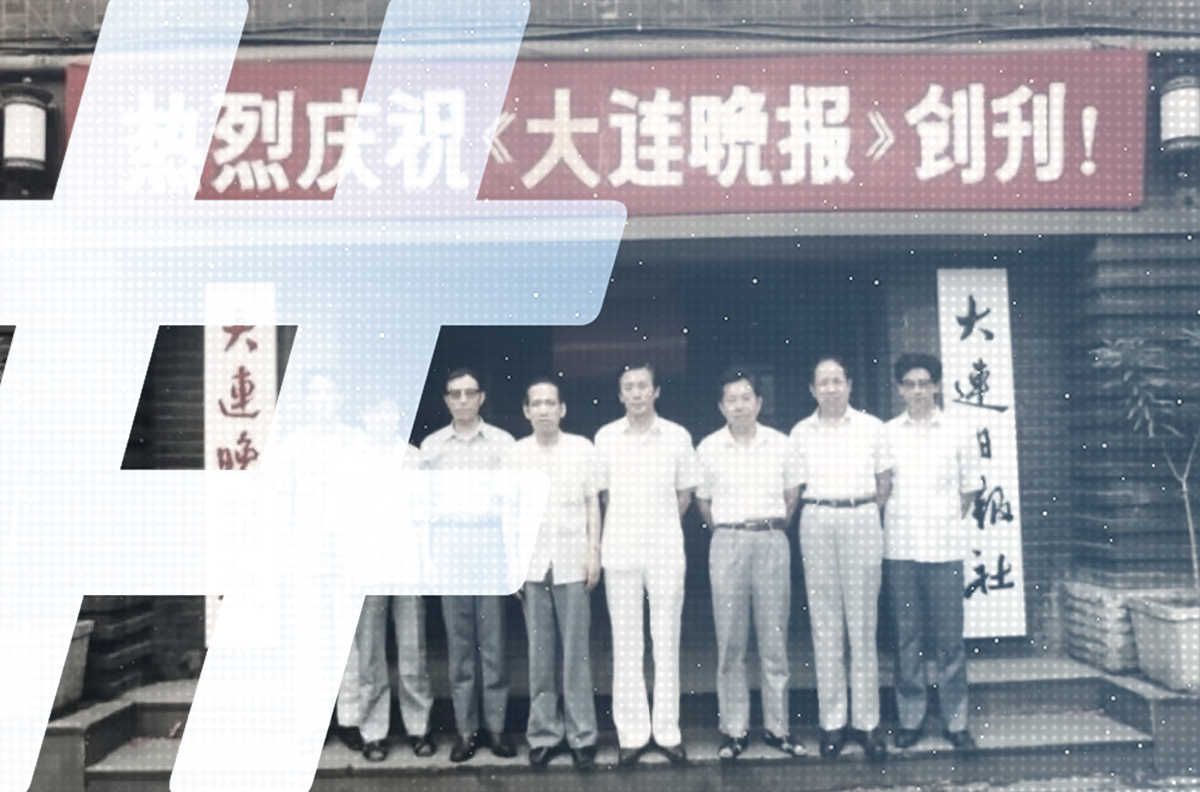It took just 18 days for the people of Egypt to overthrow the Mubarak government, which had ruled the country for 29 years. The pro-democracy movement in North Africa and the Middle East has already spread to 11 countries. In China, these events have been handled very cautiously in the media. Editorials rarely touch on the issue, and even English-language publications like China Daily, which are usually given slightly greater latitude considering their role as publications expressly for foreign consumption, have stuck to the official line as given by China’s Ministry of Foreign Affairs: “China hopes Egypt can maintain social stability.”
As Twitter has become the “engine of revolution” elsewhere in the world, similar “microblog,” or weibo, platforms in China have come under greater government pressure. Try plugging terms like “Egypt” or “Mubarak” into searches on these microblog platforms, and the messages come back saying, “Posts related to ‘Egypt’ cannot be found,” or “According to relevant laws and regulations, these search results may not be shown.” While searches may be interrupted, however, Chinese users are still able to make posts containing these terms, and discussion has not slackened.
In the past few weeks, as events have unfolded in Egypt and elsewhere, the usually lively opinion pages in China’s commercial media — which tend to push issues further than their Party media counterparts — have been far more restrained. The most notable exception was a piece published in New Century Weekly, the magazine run by CMP fellow and former Caijing editor-in-chief Hu Shuli (胡舒立). Called “The Decision Belongs to the People of Egypt,” the piece argued that “dictatorship breeds unrest, and democracy engenders peace.” While it did not mention China specifically, the relevance was clear, and Internet users in China quickly added their own comments, drawing parallels to the Chinese experience.
Few if any other Chinese media have drawn on the events in Egypt to discuss matters at home, but one can easily imagine that those both inside and outside the system are wondering whether the changes that have shaken Egypt will accelerate China’s own moves toward democratization — and whether the web might spark political reform at home. And behind these questions, a more anxious one — will the events on Tiananmen Square that shook the world in June 1989 be replayed?
It goes without saying that the situation in China today is vastly different from that in the 1980s, and very different from the situation in Egypt. Sustained annual GDP growth of above eight percent has catapulted China into position as the world’s second-largest economy. China has made clear strides in alleviating the most basic poverty. China’s international influence and its comprehensive national strength have grown substantially.
Nevertheless, present-day China also has important similarities with Egypt today, and with the China that experienced the “Tiananmen incident” 22 years ago. Market reforms in China in the 1980s deepened the divide between rich and poor, and between the cities and the countryside, and the very reforms that made many people more prosperous excited demands for greater political reform. In much the same way, the gap between rich and poor has grown sharply in present-day China, and high inflation has eroded quality of life.
According to official statistics, inflation stood at 4.9 percent last month, and grain prices were up 15.1 percent. It is also a fact that so-called “mass incidents” — a catch-all term for instances of protest or unrest resulting largely from resentments over basic rights and quality-of-life issues — are on the rise in China, particularly as a result of local government actions such as the demolition of homes to make room for property developments and other signature economic projects.
The yawning divide between rich and poor, endemic government corruption, and rising popular resentment in many areas in China all mean political reform must make it onto the agenda somehow, and soon.
Much as was the case on Tiananmen Square in 1989, two sides have become polarized in the new public space of the Internet. The government remains determined to exercise control with an iron hand, and spurns dialogue with public intellectuals who have become livelier in the online space. Even pro-reform voices within the system have been repressed, as was evident last year when seven important calls for political reform in China by Premier Wen Jiabao (温家宝) became unmentionables in the country’s domestic media.
As it becomes impossible to have this important conversation at all, mistrust deepens. Many liberal intellectuals harbor doubts about Wen’s intentions, supposing his overtures were little more than a political show.
Despite all attempts by the leadership to stifle the discussion and “guide” public opinion, however, popular voices demanding the truth and pushing for greater openness have only increased. On the virtual public square of the Internet, Chinese explore sensitive issues through the constant invention and re-invention of memes, so that keyword blocking becomes largely irrelevant; they use proxy servers to get around censorship and post what they wish.
The gap between the people and the government is deepening as well, a divide compounding the gaps between rich and poor, and between the city and countryside.
One important difference with the situation in China 22 years ago, in fact, is that democratic demands have progressed. They are no longer limited largely to students as they were before “June Fourth.” In the major social flash points we’ve seen in China in recent years, from poisonous milk powder to the collapse of school buildings in the 2008 Sichuan earthquake, forces from all levels of Chinese society have come together.
The mass reach of the Internet means that people from all walks of life can take action and potentially bring about change. The web has already become a powerful force for mobilization, a boundless, all-weather channel for the sharing of information. Differing points of view clash in online forums, everyone benefits from the exchange of ideas, and civil society gradually develops.
The Internet also provides a platform for balanced and moderating ideas. We saw this quite clearly with the recent online campaign against the child abduction and the phenomenon of child begging in China, in which Chinese Academy of Social Sciences professor and CMP fellow Yu Jianrong (于建嵘) called on web users across China to photograph children begging on the streets and post the photos to special microblog accounts set up at Sina.com and QQ.com. The campaign drew broad, grassroots support from Chinese Internet users. But there were dissenting voices as well, from the likes of well-known blogger Hecaitou (和菜头) and columnist and CMP fellow Xiao Shu (笑蜀), who raised doubts about the methods and premise of the campaign.
So, will change come to China? There is great division among international experts on this question. Ever since 1989, the Chinese Communist Party has endured amid a shower of dire predictions of collapse, and it has presided over what many have called an “economic miracle.”
Economic development over the past two decades has allowed a segment of Chinese to prosper, and has engendered a middle class in China that is now a source of social stability. But the difficult question is whether China’s economic development can be sustained. Economists such as Chen Zhiwu (陈志武) have predicted that China’s economy in its present mode of development is sustainable for perhaps another five years.
If much-needed adjustments are not made, China’s population bonus, its environment and its resources will all be exhausted. The bottleneck to sustainable development is not economic, but is all about lagging political reforms.
In this information age the world has changed. One month ago, no one could have imagined such change in Egypt. China’s future too is very difficult to read, but there are two things we can say for sure. First, political change must come. As economic development and the political status quo come more and more into conflict, changes to the system will be a necessity rather than an option. Second, all Chinese, from the grassroots to the government, from intellectuals to ordinary Joes, share the view that upheaval be avoided and that bloodshed be avoided in the process of reform. If China’s leaders can initiate political reforms at the top then there is hope for China to realize its 100-year dream of democracy, which began with the Xinhai Revolution a century ago.
While China’s government may not be able to begin political reforms immediately, it can live up to the promise it has made to the people of China, that it will rule according to law, “allowing the people to live with dignity.” Further, China’s ruling Party must open up real lines of communication with the public, and with public intellectuals. It must not cast moderates as enemies. The CCP has said in the past that it has a need to “build its leadership capacity.” We can only hope this is not about strengthening its dictatorship, but rather about “ruling well” through this difficult period of transition.
Over the weekend, there were vague calls for “jasmine” movements for political reform in several Chinese cities, inspired by recent changes in the Middle East. These became a focus of a lot of activity online, and Chinese authorities moved to prevent any real gatherings. On the surface the calls seemed to fizzle. There were no banners, no shouting of slogans. But there was what some observers characterized as “a very strange atmosphere of anticipation” as activists mixed in with police, pedestrians and casual onlookers.
These scenes themselves were sufficient to illustrate the motivating power of the Internet in this age of information, and just how difficult it is to predict and control. This time, the calls did not materialize into real action, but I’m afraid that unless China’s leaders deal with underlying structure problems, future efforts at forced suppression will prove to be vain attempts.
A version of this editorial appeared in the Tuesday edition of Hong Kong Economic Times.




















